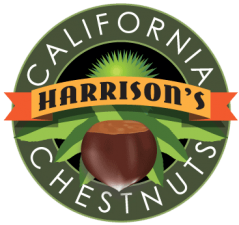Chestnut Nutrition: A Unique and Healthy Choice
Nutritional Profile of Chestnuts
Chestnuts indeed have a unique nutritional profile compared to many other nuts. They are low in fat and calories, making them a healthier option for those seeking a tasty, nutritious snack. Here is the nutritional composition of chestnuts per 1-ounce (28.35-gram) portion when raw and peeled:
- Energy: 56 calories
- Protein: 0.46 grams
- Fat: 0.35 grams
- Carbohydrate: 12.52 grams
- Vitamin C: 11.4 milligrams
- Cholesterol: 0 milligrams
Despite being low in fat and calories, chestnuts are still packed with flavor and offer various health benefits. They are a good source of dietary fiber, vitamins (such as vitamin C), and minerals (including potassium and manganese). Additionally, chestnuts are gluten-free, making them suitable for individuals with gluten sensitivities or celiac disease. Their unique nutritional composition sets them apart from other nuts and makes them a valuable addition to a balanced diet.
Chestnuts vs. Other Nuts: A Detailed Comparison
Chestnuts offer a unique nutritional profile when compared to commonly consumed tree nuts like walnuts, almonds, pistachios, and cashews. Here's a side-by-side comparison of these nuts per 1-ounce (28.35-gram) portion:
-
Chestnuts (Raw, Peeled):
- Calories: 56 calories
- Protein: 0.46 grams
- Fat: 0.35 grams
- Carbohydrate: 12.52 grams
- Dietary Fiber: 0.9 grams
- Vitamin C: 11.4 milligrams
- Cholesterol: 0 milligrams
-
Walnuts:
- Calories: 185 calories
- Protein: 4.3 grams
- Fat: 18.5 grams
- Carbohydrate: 3.9 grams
-
Almonds:
- Calories: 160 calories
- Protein: 6 grams
- Fat: 14 grams
- Carbohydrate: 6 grams
-
Pistachios:
- Calories: 156 calories
- Protein: 6 grams
- Fat: 13 grams
- Carbohydrate: 8 grams
-
Cashews:
- Calories: 157 calories
- Protein: 5 grams
- Fat: 12 grams
- Carbohydrate: 9 grams
Key Differences:
- Fat Content: Chestnuts have significantly lower fat content compared to the other nuts.
- Protein: Chestnuts have the lowest protein content among all the nuts compared.
- Carbohydrates: Chestnuts are higher in carbohydrates due to their starch content but also have more dietary fiber.
- Vitamin C: Chestnuts uniquely contain vitamin C, while the other nuts do not.
- Cholesterol: All nuts listed here have zero cholesterol.
In summary, chestnuts provide a lower-fat, higher-carbohydrate alternative with vitamin C, making them a distinctive addition to a balanced diet. Other tree nuts like walnuts, almonds, pistachios, and cashews are generally higher in fat and protein.
Ready to Enjoy the Unique Benefits of Chestnuts?
If you're interested in experiencing the unique nutritional benefits of chestnuts, consider purchasing our fresh chestnuts online. We offer a variety of options to buy fresh chestnuts directly from our farm, ensuring you receive top-quality, farm-fresh chestnuts. Buy fresh chestnuts online now and enjoy a nutritious and delicious snack that's a great addition to your diet!
